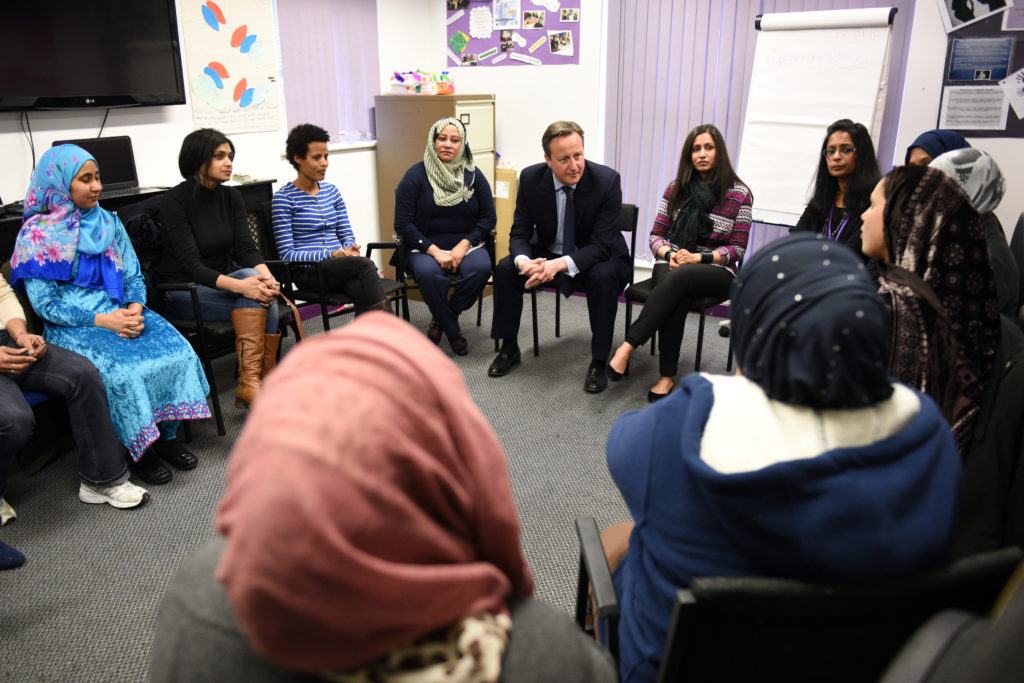Getty Images

By your mid-forties, most people have identified a few questions about their life-choices that are asked so frequently by new acquaintances that they come to define — or at least inform — one’s sense of self.
Everyone has their own set (I hypothesise); there are three, in my case:
- Gosh, what do you eat at Christmas? (Not meat, you savage.)
- Heavens, were you the only Scottish Conservative? Ha! Ha! (This is asked less often post-Ruth, thank goodness.)
- And, time after time in the workplace: you’re a statistician … but you also write, about politics? Isn’t that … rare?
This last enquiry channels Doctor Johnson’s remarks about dogs on their hind legs. The miracle for a statistician is that you can communicate in English at all, is the subtext, let alone string words together well enough to have someone pay to publish them. Conversely, in the eyes of my (political) editors I often see a half-suspicion that I’m making up the statistics career. Either (words)/or (numbers), is our default setting. Competency at both is sensed as bizarre.
Here’s the first seeming-paradox. There is no “either/or” between words and numbers; at the same time, of course, there is. CP Snow’s two cultures exist, most clearly in the words/numbers dichotomy, but only because we structure them into existence through conscious decisions about how to educate our young. It’s a human choice, not a law of the universe. Good with words or good with numbers is a story we tell about ourselves, and like all stories it has its heroes, and villains.
Good with words, and you can read law or PPE, become a barrister, then an MP, then Prime Minister. Not your only option: good with words, and you can read novels for three years, become a TV producer, then commission dramas about how awful the politicians are.
Good with numbers, on the other hand (and therefore bad with words), and… well. You won’t need to worry about competitive sports, at least, and there’s always the solace of Bach.
How else to explain the fake-boasting. “I was never good at maths!”, they trill, while looking over your shoulder. They mean “Thank God I never wasted my time on that rubbish.”

Here’s the epitome of the either/or value system, Simon Jenkins, breathing his lofty disdain for the very concept of maths-at-school: “The prominence of maths in the curriculum is education’s version of Orwell’s imaginary boot, ‘stamping on your face … forever’.”
According to Simon, encouraging children to be good at maths is like a totalitarian regime that pivots on the destruction of romantic love. Beggin’ your ‘umble pardon, sir, an’ I knows I’s only a statistician, but I thinks you’ve misread your Orwell.
This matters, politically. A few years ago, the then Prime Minister, David Cameron, wanted to improve facility with English among Britain’s immigrant communities. He was chastised by his Left-wing opponents for focusing efforts on women with (mainly) Bangladeshi and Pakistani backgrounds.
In my teabreak one day, I looked up the official statistics which broke down English ability by ethnicity and geography-of-origin, and calculated the odds of lacking English in each of those categories, and compared these between women and men.
It did indeed appear that women with Indian, Bangladeshi and Pakastani backgrounds were between four and five times as likely to lack any English ability, as compared to their menfolk. But I listened in vain to hear mention of such statistics in any political or journalistic commentary.
Government statisticians would have calculated any of those odds ratios for ministers, had the ministers asked for them. But my unofficial calculations took a few minutes prodding with an excel spreadsheet: it shouldn’t require a government department to help guide ministerial or journalistic intuition. The point is that such a basic facility with numbers should be taken for granted amongst the people who rule us.
This widespread political innumeracy means that the numbers which do make it into the public domain are treated with awe, like holy relics in the age before Luther. “Never mind how poor you feel. Look at the GDP [and ignore the tails of the income distribution].”

In Britain, Gordon Brown took advantage of statistical ignorance to fight and win a useless “war” against poverty. He defined an arbitrary point on the income distribution as “poverty”, and spent shedloads to move people from one side of it to the other. If poverty is defined as “income lower than £10,000”, and your income is £9,999.90, and Gordon gives you 11 pence, you are no longer poor, according to Gordon.
Journalists (good with words not numbers) repeated his claims about the numbers of people “moved out of poverty”, without once, to my memory, asking for the average improvement in income for such people, or its impact on the shape of the income distribution. Lacking statistical ability, most journalists don’t even know how to ask such questions. Meanwhile, after Gordon spent all our money, the objectively poor continued to shiver in misery at the extreme left-hand tail of the income curve.
There are hidden costs as well as these obvious ones. If you don’t know how to interrogate data, you’re unlikely to know how to design studies to test policy efficacy (all those pointless “pilot implementation schemes”, that produce data unfit for decision-making, rather than prospectively planned, randomised trials). This increases the chance, obviously, of bad policy decisions (and is nothing to do with Left vs Right.) From educational methods to poverty reduction, lack of properly planned trials (with randomisation) handicaps the development of evidence-based politics. And few politicians or journalists even appear to notice.
The drug development industry is obsessive about missing data, because the things we cannot measure (think of patients choosing to leave a clinical trial, and count their reasons for leaving) have a fundamental impact on the assessment of drug efficacy and safety. Here, too, there is an analogue for the price we pay for privileging words over numerical thinking: as Henry Olsen wrote in his excellent piece recently, “nobody” saw the rise of populism coming, mainly because “nobody” who writes about politics lives in the areas that gave Trump and Brexit their victories.
All those nobodies would have done better had they applied some basic statistical reasoning. “Everyone I know supports Remain/Clinton. But I can see from the polls that a significant chunk of the country doesn’t. What am I missing?”
Statistical thinking, in other words — not expertise in complex methodological topics, but basic statistical thinking — should be a desirable characteristic of a well-rounded citizen, whatever their field of work. There should be no either/or, and though (I’m only a statistician, remember) it’s a cliché to say so, it remains true: the person who can’t interrogate data is as limited — perhaps more so — than the citizen who doesn’t “get” Shakespeare.
We have the politicians and the journalists we deserve, of course: a depressing thought. So here’s a game to take your mind off things. Imagine three doors in front of you: A, B and C – behind one of them, I’ve parked the car of your dreams; behind the other two I’ve left photographs of my beautiful cat. (She’s alive, whatever Schrödinger says – it’s just her photo, and this isn’t a trick.) All you have to do to win the car is pick a door — and I’m going to give you two chances.
You pick door B – it’s in the middle, why not, principle of indifference, right? I open door A, and show you a lovely picture of Kitty (awwwww.) And I ask you, now we know that door A isn’t the car: do you want to stick with door B? Or switch to door C?
Practically everyone — this is one of the most famous “paradoxes” of them all — says “It doesn’t matter whether I switch or not. There’s a 50:50 chance the car is behind door B or door C.”
In fact, the chance of finding the car increases, from 33% (before the first door was opened) to 67%, if you switch. Lots of people become angry about this. It’s not the imaginary car, really, that they’re angry about. It’s having been forced to choose either(words)/or(numbers) at far too early an age. There are too many obvious substitutes for “car”, after all, and the “game” is a bit close to real life for comfort.
If you think anger is an incorrect response to the unalterable laws of probability; if you agree that dismissing “all that numbers stuff” is a defect, not the mark of a civilised human; if you’re fed up with politicians rattling off statistics without journalists deconstructing them: then my request of you is small.
When your children are picking subjects for school, encourage them not to drop maths. For as long as they’re in education, in fact, encourage them not to drop maths. Don’t perpetuate the either/or myth (or look over my shoulder at parties). Statistical thinking is as important as the ability to spell — neither Alexa nor Siri will shout “sloppy reasoning” when they read out the morning news headlines. And if you disagree with my conclusions, then I’m sorry: but I don’t think your numbers add up.










Join the discussion
Join like minded readers that support our journalism by becoming a paid subscriber
To join the discussion in the comments, become a paid subscriber.
Join like minded readers that support our journalism, read unlimited articles and enjoy other subscriber-only benefits.
Subscribe